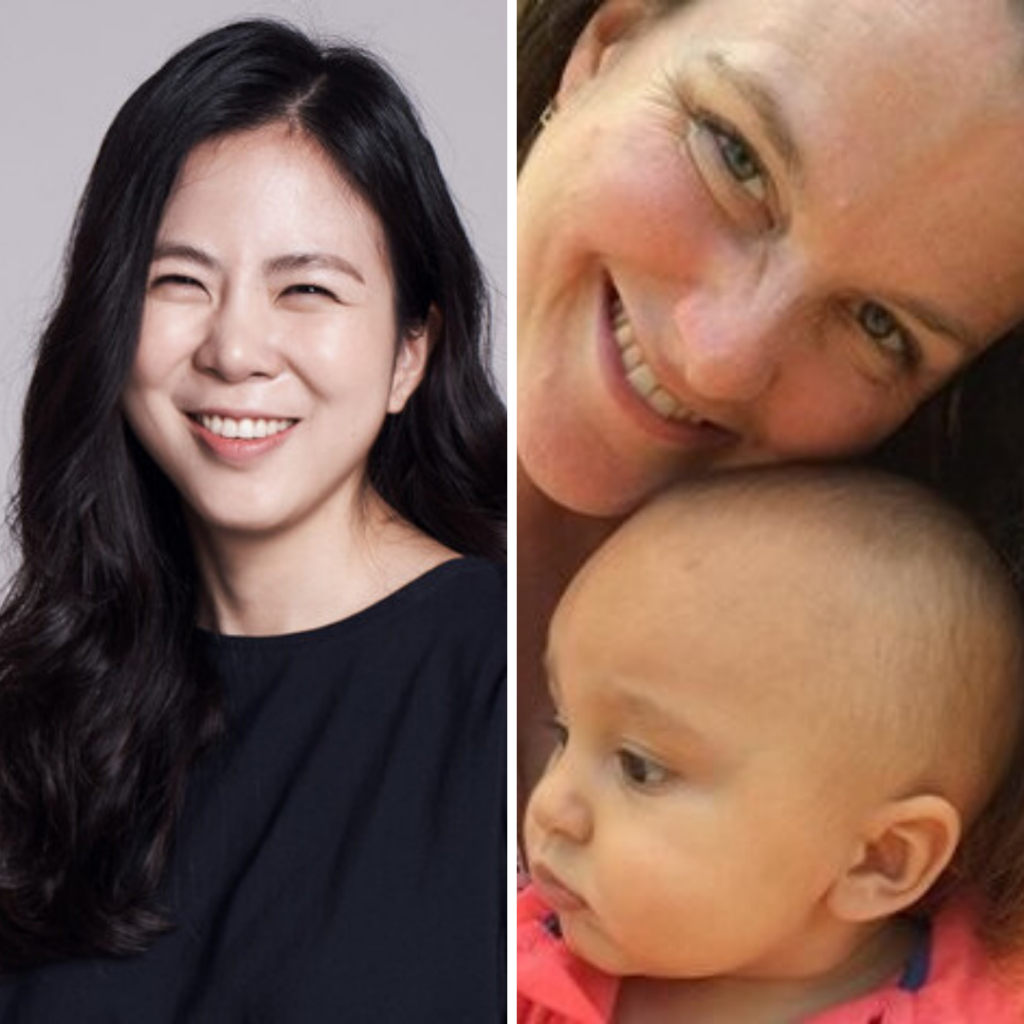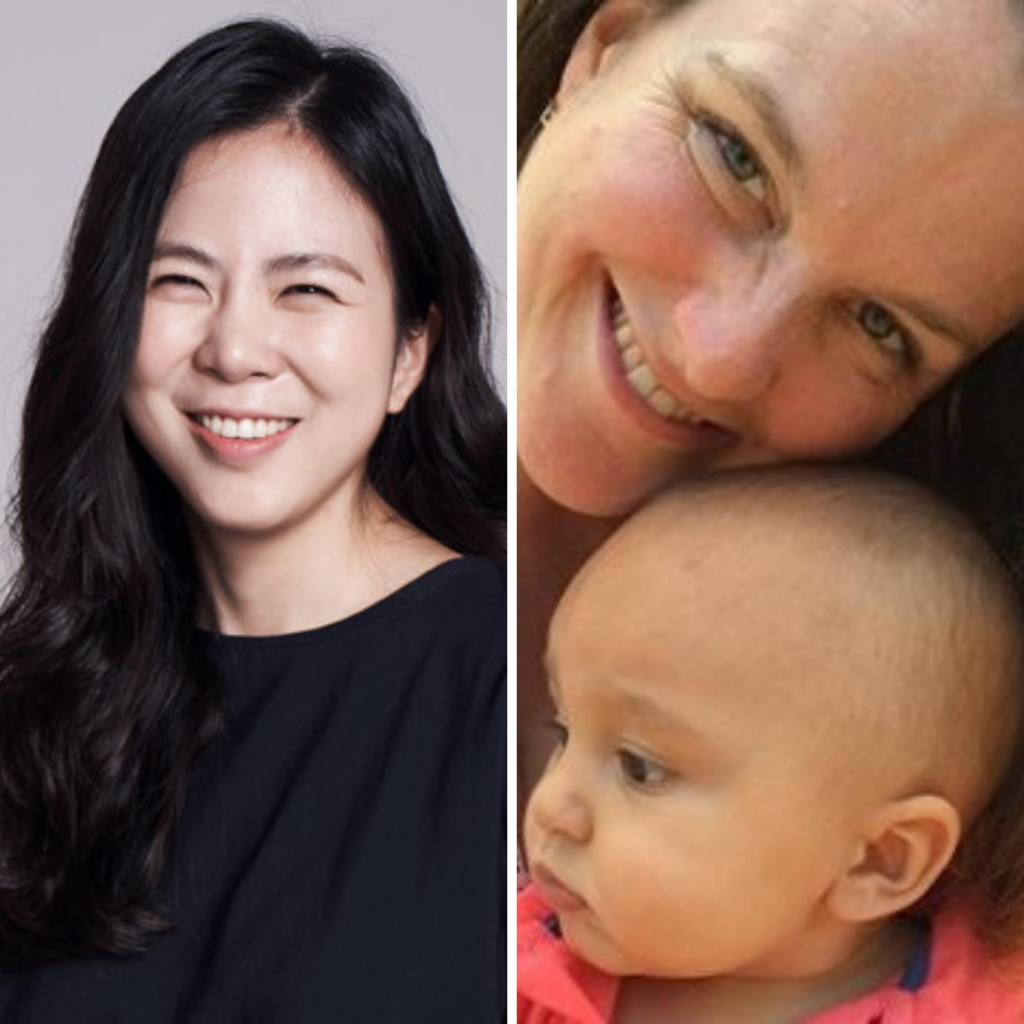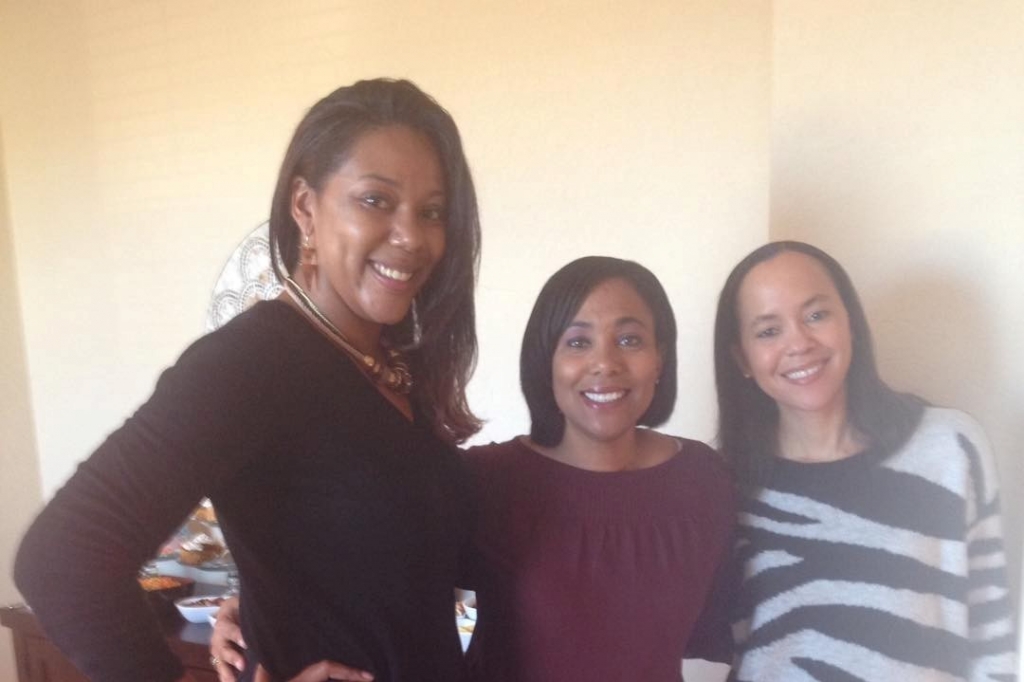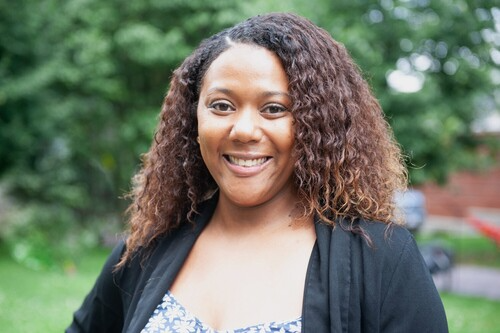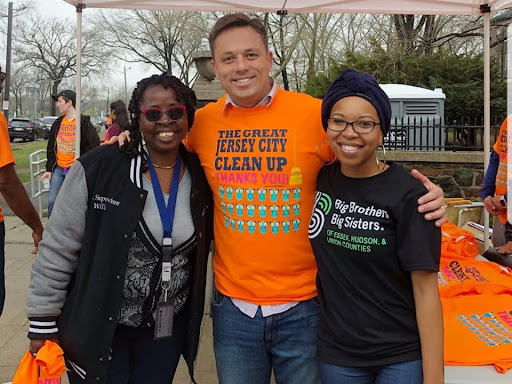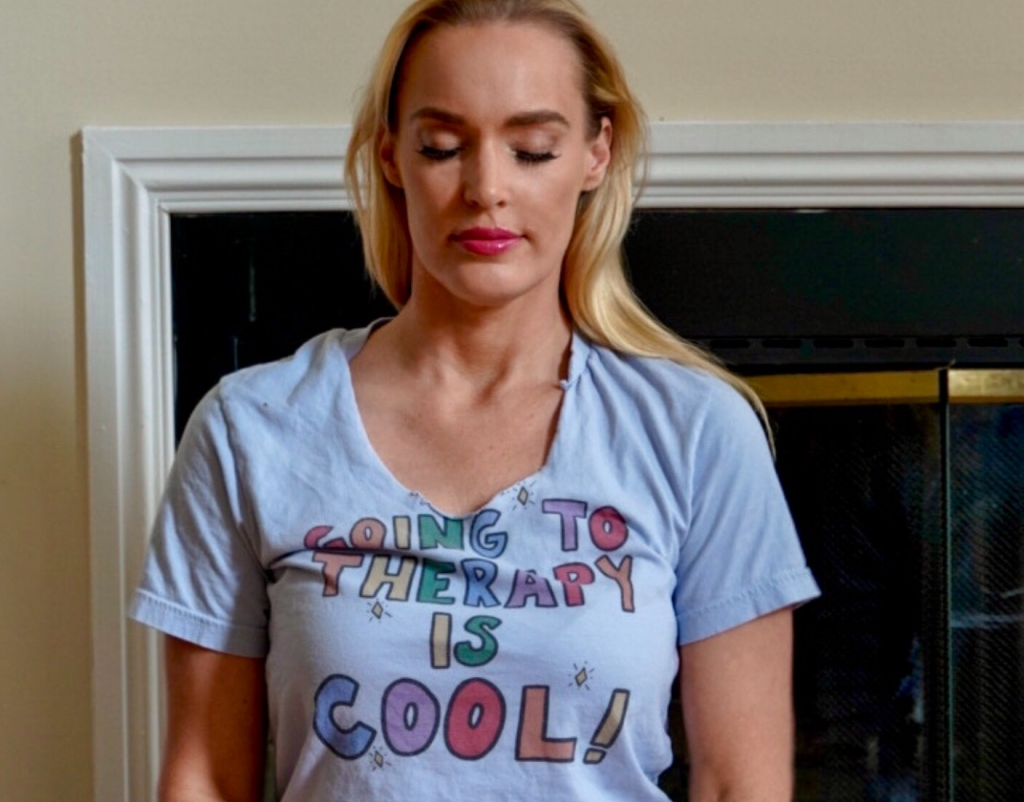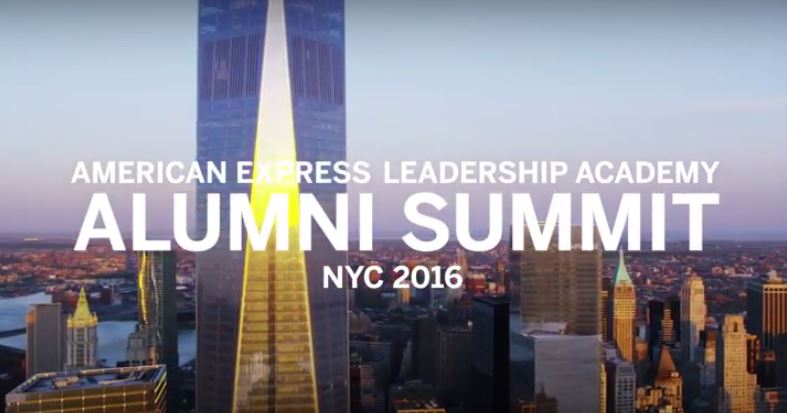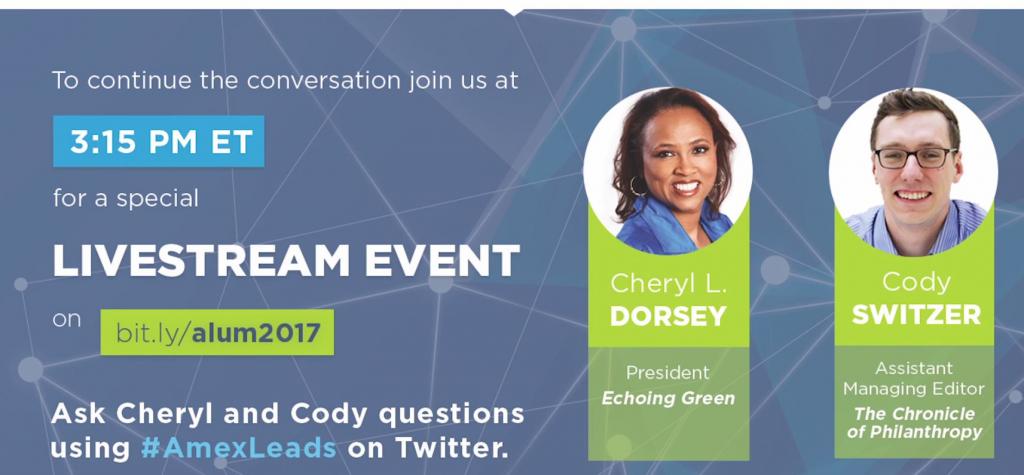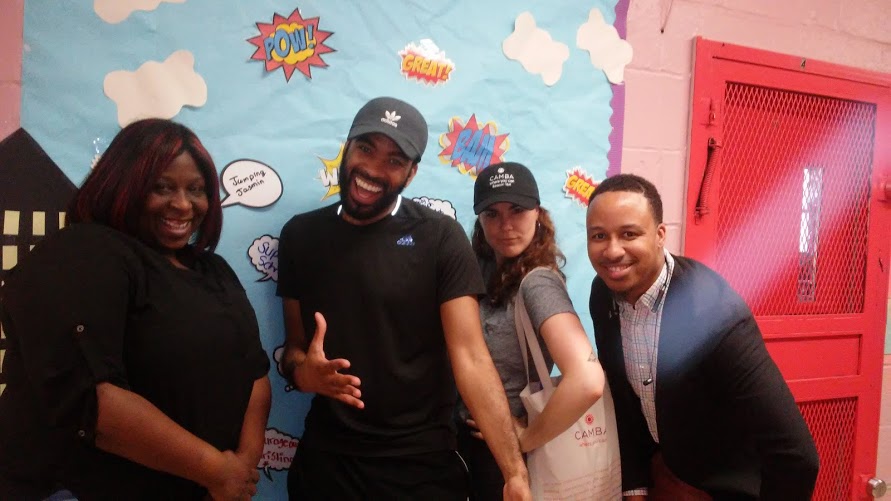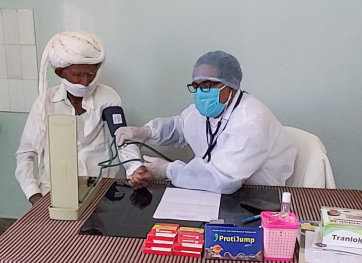
Dr. Prakash Tyagi is the Executive Director of GRAVIS and Founder-Director of GRAVIS Hospital. GRAVIS works in the Thar Desert of India, focusing on holistic community development support, including providing access to clean water, education, food security, and health care. The organization reaches over 1.4 million people living in poverty. It has helped local residents form more than 3,500 community-based organizations.
In April, Prakash was awarded the American Express Leadership Academy Alumni Award for his impact on health and community strengthening. The award carries a grant of $25,000 which he intends to put toward training and development for GRAVIS.
We spoke with Prakash to learn more about his work, his impact, and how he and his team are adapting to the COVID-19 pandemic.
I have a medical background, so I am interested in public health on a global level. There is often a big disconnect between communities’ needs and perceptions, and the way that health programs are designed. I believe that I play an important role in connecting the dots between community needs and policies, priorities and funding.
I have been fortunate to have been invited to a number of global health conferences, as well, where I have been able to present the perspectives of my communities, perspectives that are similar to those of many other communities in need around the world.
“Our mission is to create self-reliant rural communities that participate in their development with us as we work for them.”
At the end of the day, our work transforms lives. We are saving lives every day, and not just in our medical work, as families receive the benefits of our interventions in food and water security that are prerequisites to good health. We work with extremely underprivileged people, yet our communities are never hopeless, never depressed, they are always optimistic and resilient. Even now, during this crisis, we see a lot of resilience and strength. That excites me.
Our mission is to create self-reliant rural communities that participate in their development with us as we work for them.
Before the pandemic, what did a typical day look like for you?
Before this, I was busy with a lot of office work. As I mentioned, I’m a physician by training, but most of my work is administrative, monitoring our progress and impact. I also travel a lot, spending about eight to 10 days a month visiting different villages in different areas, and checking on our hospitals and rural clinics. In normal life, I also spend about one-third of my time traveling to represent GRAVIS in India or abroad, meeting with partners and academic organizations and funders. 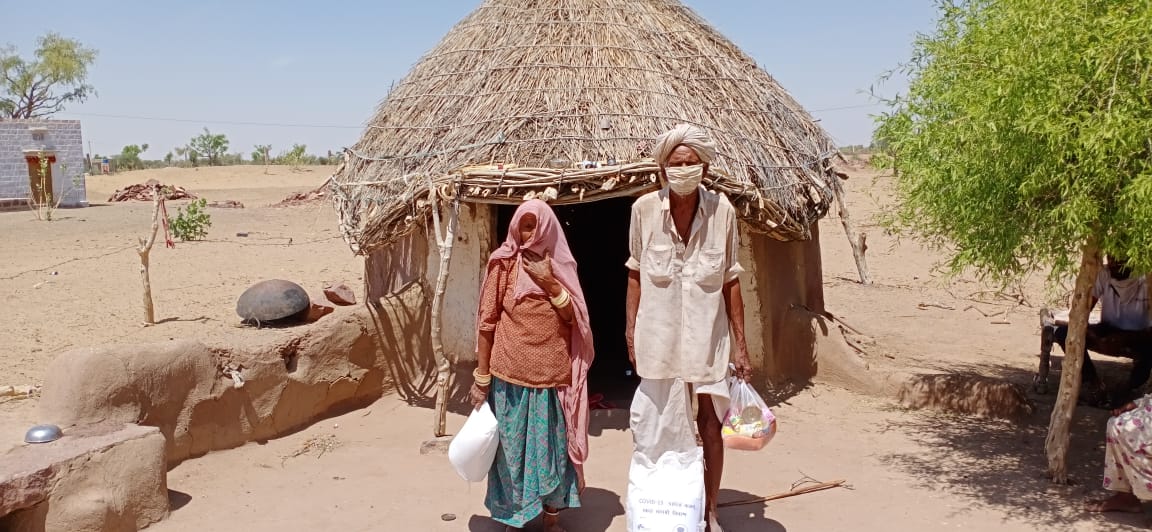
And now? Tell us about your “current normal”?
India is a densely populated country with a fragile health system and infrastructure. We rank in the middle when it comes to current COVID-19 infection and death rates. India imposed a very strict lockdown several weeks ago: 1.25 billion people are indoors, transportation is limited in the cities, and all forms of public and private transportation between cities is stopped. That has helped our numbers remain lower than Europe and North America, but our testing rate is also very low, so we don't know the full reality. These numbers may grow.
Our work is in a desert region, and the population is very scattered among remote villages. Even on normal days, it's extremely difficult to reach the nearly 1.4 million people we serve. It has become even more difficult now. As a result, we’re focusing on three important areas:
The first is medical services. The hospital and primary clinics we run are working 24/7, catering to patients who are coming in with COVID-19 symptoms and to patients with non-COVID-19 health needs who can’t get to other hospitals. With many outpatient clinics closed, we are providing the full range of medical support, often to nearly 200 patients a day.
The second is food security. Large numbers of people are deprived of food, both because of the impact of the lockdown on the supply chain and because they have no wages or income and little to no savings. We are providing family kits that contain dry food supplies for people to cook, and personal hygiene items to clean hands and bodies.
And third, we are doing a lot of work on COVID-19 education. It's a new and complex disease and we want to raise awareness and provide up-to-date information. This virus keeps changing and so does the scientific information. We believe it's extremely important that we simplify that. We reach out to people to help them understand what the virus is so they can protect themselves. There are many myths and misconceptions we need to counter. So far, we have reached out to almost 400,000 people – and this is just the beginning.
We are seeing that remote rural populations are very adversely impacted by this disease because they are less likely to have access to medical supports and information. There is even greater vulnerability among people with disabilities, older people and those with weakened immune systems. This is unintentionally causing a lot of stigma and discrimination. We are trying to reach all people with the key facts and messages they need.
In addition to the health consequences, there are livelihoods at stake. In the near future, we will see significant poverty and mental health impacts. Educational opportunities are going to be taken away because children can’t go to schools to learn.
How are you adapting to meet these needs?
From my medical perspective, I can foresee that COVID-19 is going to be with us for some time. With this in mind, we need to move from an emergency response to establishing more long-term plans. We know we will need a more holistic approach, and we are working in deep consultation with the communities to develop it. 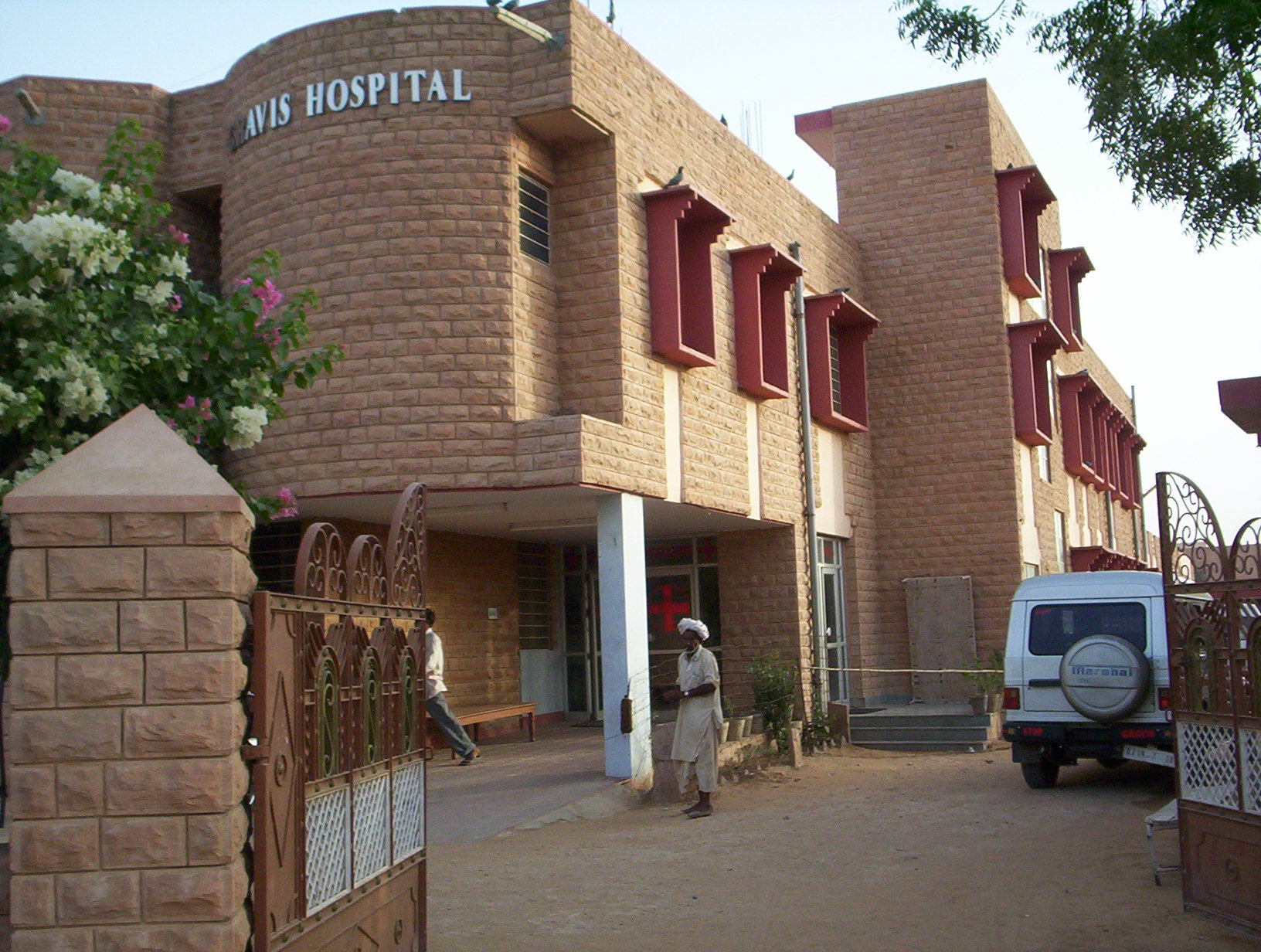
We have always been community-based and have facilitated the formation of 3,500 community-based organizations (CBOs), which have been a core strength in our programs over the years. These organizations are now instrumental in our response to COVID-19. In our usual work, we do a lot to improve productivity, letting people grow what they have in high quantities, develop rainwater harvesting infrastructure, and introduce new agricultural technologies. Doing our work during a time of social distancing is challenging and we will have to see how to adjust as this becomes the new norm.
We are hopeful we will be able to get the resources we need to create a much larger model of the work that we already do, with more COBs, villages, and beneficiaries.
“We need a more holistic approach, and we are working in deep consultation with our communities to develop it.”
We have always focused on human needs, but we are going to be an organization which believes even more deeply in humanity and human rights. We are learning that within vulnerable groups there are deeper vulnerabilities that are often missed when we look with one lens.
Can you share a moment that has inspired you, amid the crisis?
We work in rural areas where poverty is high, where 60 to 70 percent of the population is poor. There is a small percentage of families who are a little well-to-do. They don’t have fancy cars or electronics but they have a lot of food grains. Many of these families are coming to us and saying, “We don't have a lot but we have enough and we are happy to give some to you so you can give it to others.”
They can’t give directly because of the lockdown, so our team collects food items like wheat and millet and grains and distributes them.
While there’s a lot of hardship and pain happening in this crisis, we also see the positive sides of humanity, which is inspiring.
How are you personally adapting to support your team, some who can work from home, other who are on the frontlines?
In my view, leadership is about leading a good team and letting people deliver their best possible outcomes. Leaders should be able to provide support, and have the trust to delegate responsibilities. Only someone else can evaluate how well I do this or not. In recent weeks, I have tried to be more confident in delegating, and to really trust in people’s abilities, and keep an open mind to accept new ideas and feedback.
We have close to 200 people in our organization, and we are very collaborative. Working from home is new for our organization. There are positives and drawbacks for an organization that believes in direct engagement, face-to-face meetings, and direct interaction between ourselves and communities.
Being away from each other means being especially responsive and time-oriented, to make sure we deliver on our mission. It has also given us a lot of time to pause, think more critically and innovate.
This experience is teaching us to think beyond the projects, timelines and milestones, which are all good but can sometimes be a little mechanical. When we are inclined towards a more professional approach, the idea of humanity can sometimes take a backseat. Personally, this is helping me to become softer and kinder, and someone who appreciates life in a deeper manner.
You were recently awarded the American Express Leadership Academy Alumni Award. What was that like, and what does that mean to your work and planning?
I have been a part of the [American Express Leadership Academy] alumni network for over three years and it’s a group of great people and organizational leaders from many parts of the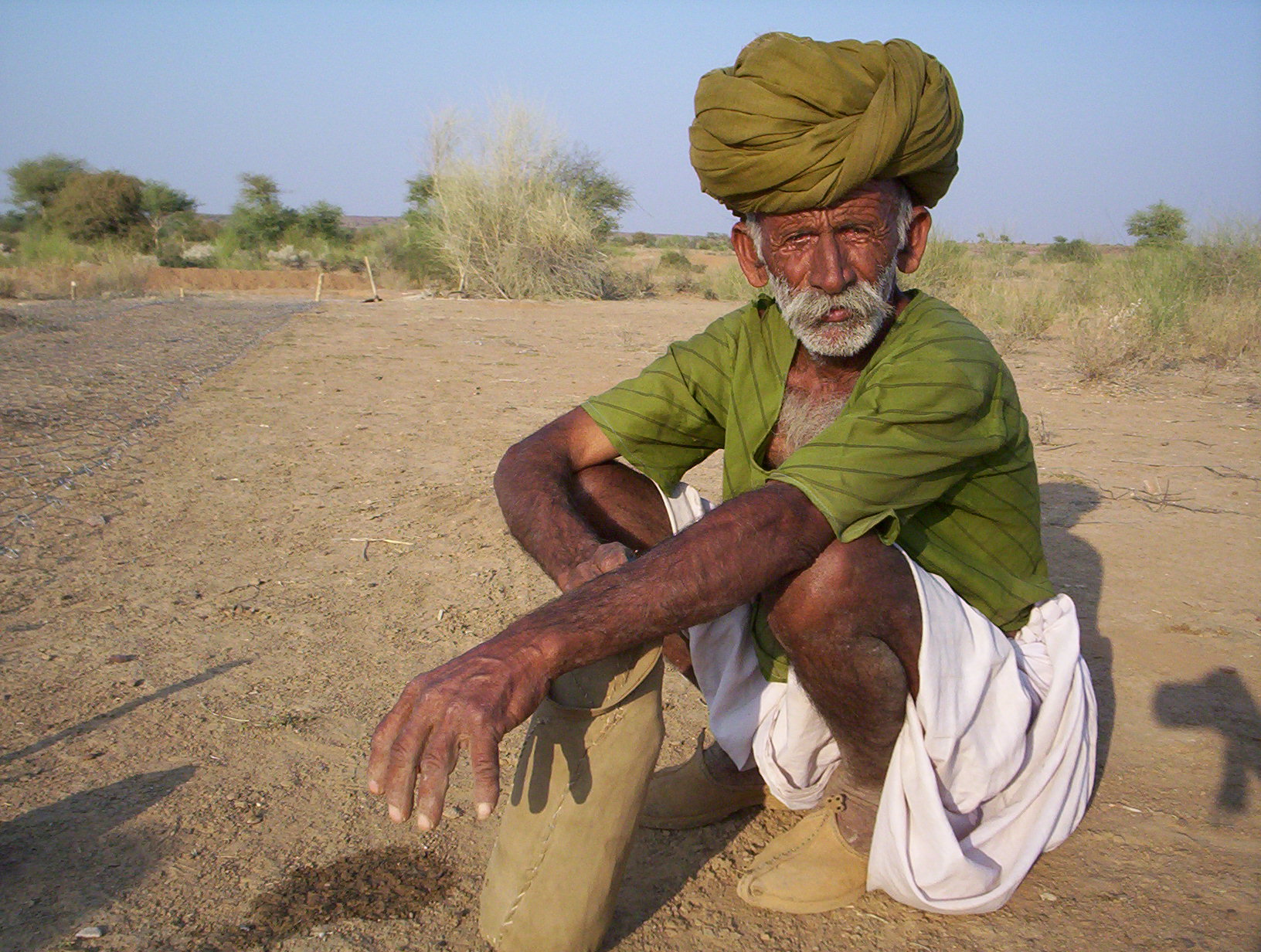 world. I’ve received feedback, new knowledge and ongoing inspiration.
world. I’ve received feedback, new knowledge and ongoing inspiration.
The award is a great honor, a significant accomplishment and a morale booster both for our CBOs and our team.
We’ll use the monetary resources for training and capacity building and thinking for the long-term future. The funds will help us strengthen the hospital, improve medical equipment and our facilities—but it will also help us to make new partnerships because it makes our name credible and gives us recognition. It will help us scale this work.
We believe we are unique in the blend of different activities that we do and the holistic approach that we take, doing medical work as well as drought mitigation and climate change adaptation. Our work is very much about our communities in India, but can also [contribute] in some ways to communities in other parts of the world.
If our model is successful and visible and can aid in the sustainability of other communities, then that is a great outcome.
_______
About Prakash Tygai
Prakash Tyagi is the Executive Director of GRAVIS and Founder-Director of GRAVIS Hospital. He received a Fulbright-Humphrey Fellowship to study global health at UNC Chapel Hill, a Ford Fellowship to study non-profit management at Columbia University in New York, and has studied public policy through a Fleishman Fellowship at Tarry Sanford School of Duke University. He provides strategy supported to nonprofits working on health and development aspects around the globe and has written extensively on major global health issues and priorities. Dr. Tyagi is an active development practitioner and public health professional and has contributed significantly in the fields of maternal and child health, geriatrics, HIV, TB and occupational health through his writing, research and field work.

